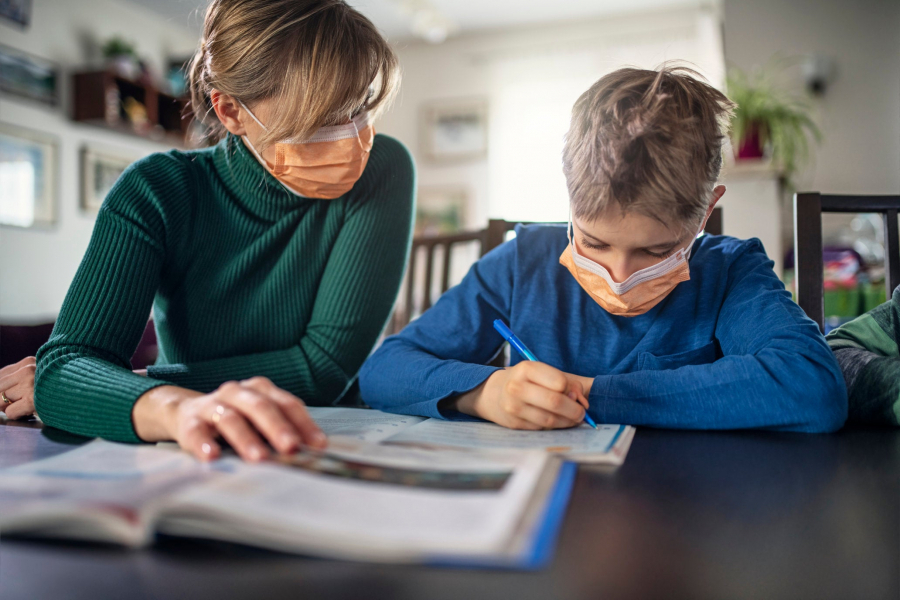This will benefit more than 2,600 students at the central campus located in Catacamas, Olancho.
At the same time, with the help of the Secretariat of State in the Despachos de Desarrollo Comunitario, Agua y Saneamiento (SEDECOAS), it is developing the Integral Improvement of Infrastructure and Educational Training, an initiative that is expected to benefit more than 43,802 secondary school students; modernize 105 secondary schools; provide equipment for technical education in 294 vocational workshops, 105 computer workshops and 315 natural science laboratories; in addition to training 15,285 teachers in entrepreneurship and competency-based teaching methodologies.
A total of 22,116 tablets have been distributed to honduran students and teachers to reduce the digital divide.
In Guatemala, the second stage of the Infrastructure, Machinery and Equipment Investment Program for the Universidad de San Carlos (USAC) was completed, strengthening 37 educational centers nationwide, positively benefiting 156 municipalities in 9 of the country's departments, whose buildings are close to areas of extreme poverty, including 42 new infrastructure works, 13 refurbishment projects and the purchase of furniture and various modern technology equipment and machinery.
El Salvador is currently implementing, together with the Ministerio de Educación, Ciencia y Tecnología (MINEDUCYT), the "My New School" program, which consists of the reconstruction and remodeling of the infrastructure of 186 schools located in departments with high poverty rates, benefiting 55,401 students in kindergarten, primary, secondary and high school per year.
CABEI also recently approved the Program to Reduce the Digital Divide in Schools, which acquired 592,021 laptop computers and 6,807 specialized accessories for people with disabilities, teachers and students.
In Costa Rica, the Bank approved two non-reimbursable technical cooperation grants last year. The first was for the donation of fundamental equipment to create a Didactic Laboratory for Renewable Energy Generation at the Universidad Técnica Nacional (UTN); and the second was to assist the Ministerio de Educación (MEP) in the planning, cost analysis and socioeconomic evaluation of financing for the construction and equipping of 60 educational centers in vulnerable conditions, which will benefit 14,000 students in five of the country's seven provinces.
CABEI Bicentennial Scholarships
As part of CABEI's efforts to guarantee quality education for students with less accessibility, this year 2022 it is launching its "Bicentennial Scholarships" program in conjunction with its Fundación de Apoyo Social (FAS).
This initiative is expected to award 1,125 scholarships over a five-year period among CABEI member countries that make up the Central American Integration System (SICA) and Cuba, each benefiting 25 low-income secondary school students through a subsidy that will be channeled through the ministries of education of each country.
The maximum support per beneficiary is US$1,000 per year for the duration of the program, and the resources will be used exclusively for activities and tools to improve the children's learning environment.
CABEI, as the region's main financial arm, will continue to support partner countries through different credit and technical assistance operations for the execution of education and training projects, as this tool is key to achieving levels of growth that ensure and increase formal, and inclusive employment and reduce inequality of opportunities and income for Central Americans.
 English
English  Español
Español 
